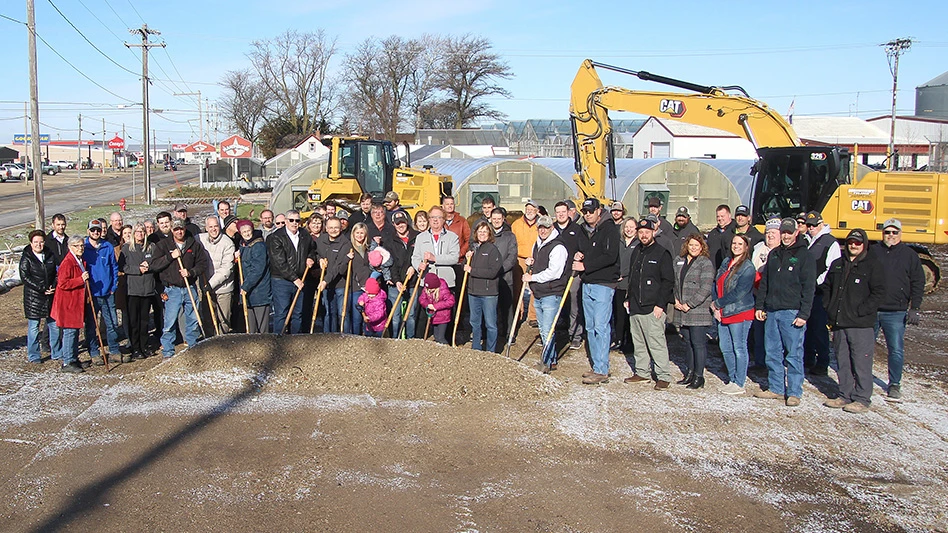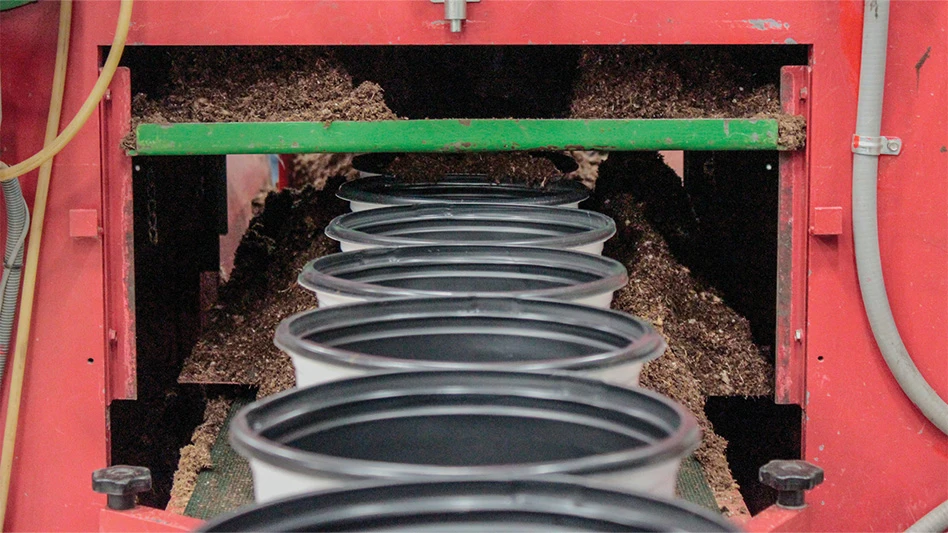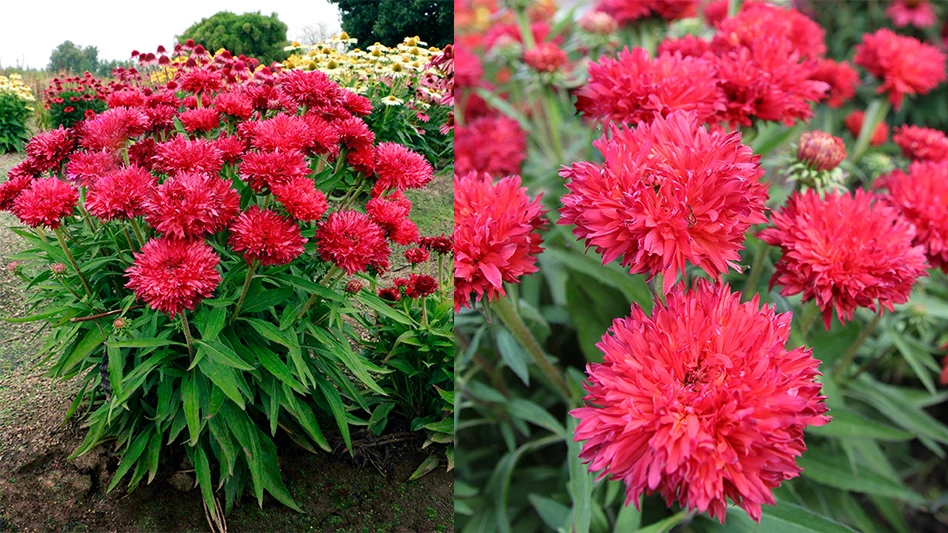
To achieve the best results with commercially prepared growing media, it is important to maintain proper product storage and inventory rotation. Proper storage will maximize both the shelf life of the growing media and minimize the potential for crop difficulties associated with product aging and contaminants. Here are some simple guidelines to follow to achieve the best results from your growing media.
Inside storage
The ideal storage location is inside a building where it will be protected from the elements including moisture, sunlight and extreme temperatures. Here are some additional recommendations:
• Keep growing media on pallets to avoid contact with the ground.
• Do not store growing media in the same building or near herbicides or other chemicals.
• Control rodent populations, which can damage packaging, burrow into product and contaminate the growing media (i.e. weed seeds and droppings).
Outside storage
Some greenhouse/nursery operations cannot store growing media or media components inside a structure. If product must be stored outside, follow these guidelines:
• Keep vegetation cleared from around the storage area to avoid contamination from weed seed.
• Place traps near storage area to control rodents and other animals from burrowing into the packaging.
• Cover with opaque plastic or a tarp to minimize sun damage and moisture intrusion from rain and snow.
• Do not spray herbicides or other chemicals on or around the stored growing media or in areas where it may come in contact with spray drift.
• For added protection, do not remove the shrink wrap from the pallets until it is ready for use.
Other best-use practices
• Manage inventory rotation with “First in, first out” by using the oldest material first.
• Check the manufacturing date on the packaging. If coded, contact the manufacturer for assistance. While growing media does not necessarily go bad, the pH, nutrient status and wetting ability can change with age and storage conditions. For best results, use peat based media within nine months of manufacturing date. For bark-based media, use product within two to six months, depending on manufacturer and product formulation.
• If you carry over product from the previous year and have a question about product age, contact the growing media manufacturer. Most manufacturers will offer to test samples and provide recommendations for use of aged growing media.
• If packaging becomes damaged or torn, seal with tape as soon as possible.
• In winter months, if product arrives frozen or has been stored outside in sub-zero temperatures, you will need to thaw product before use. Move product inside or to a warm area leaving six to eight inches between pallets to allow for air flow between pallets. This will decrease thawing time. Depending on ambient temperature, it can take as long as three to four weeks for product to thaw.
• If stored where weed seed contamination is suspected, minimize potential weed issues by removing shrink wrap outside the greenhouse and wash off bales/bags before moving into potting area.
• Remember to keep accurate account of your inventory of growing media to be sure you have adequate supply during the peak planting seasons.
If you have any questions about the growing media you purchase and use, contact the manufacturer for assistance.
Latest from Greenhouse Management
- The HC Companies, Classic Home & Garden merge as Growscape
- Eason Horticultural Resources will now officially be known as EHR
- BioWorks receives EPA approval for new biological insecticide for thrips, aphids, whiteflies
- ScottsMiracle-Gro transfers cannabis subsidiary to focus on core lawn and garden business
- Ellen Mackenbach-Lakeman appointed new CEO of Dümmen Orange
- Southern Garden Tour sets 2025 dates for trial garden open houses
- Belgian thermal screen manufacturer Phormium launches Noctis Thermo
- New book explores plants that thrive in Rocky Mountains





